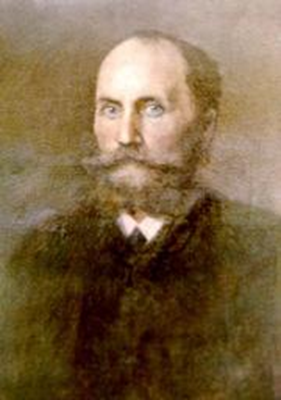Death as Trauma Processing
Freud’s disciple Oskar Pfister attributes the
condensed life impression which may occur due to the shock experience of imminent death to
anti-cathexis; the psyche, Pfister claims, offers consolation by erroneously
suggesting that the selection of contemplated experiences make up for a whole
life.[1]

Interestingly, both accounts rest upon the
same argument (viz., interest, self-protection). Bergson’s, though, presupposes less
than Pfister’s while being more inclusive, or so it seems. If, as Bergson
suggests, the removal of self-interest equally removes obstacles for
recollection and accordingly activates memory, the result will be a more
embracing or comprehensive consciousness and an invigorated personhood.
 The
latter would be requisite, I think, for processing indigestible memories, or trauma
– whether contingent trauma or trauma of birth. Ordinary mental self-protection
understandably protects one against the stirring of past psychical damage, for
example by oppressing or circumventing its re-emergence, by preventing
confrontation with anything which reminds of this damage, or by re-cathecting mental
energy in psychical defence mechanisms. Once there is no need for self-protection
anymore, waves of past trauma will be absorbed by the abyss of the psyche. If
death consists of enhanced subliminality, and the latter on an abysmal
increase of consciousness, then death may indeed be an ultimate attempt to digest
the indigestible and to process trauma. I would even go farther.
The
latter would be requisite, I think, for processing indigestible memories, or trauma
– whether contingent trauma or trauma of birth. Ordinary mental self-protection
understandably protects one against the stirring of past psychical damage, for
example by oppressing or circumventing its re-emergence, by preventing
confrontation with anything which reminds of this damage, or by re-cathecting mental
energy in psychical defence mechanisms. Once there is no need for self-protection
anymore, waves of past trauma will be absorbed by the abyss of the psyche. If
death consists of enhanced subliminality, and the latter on an abysmal
increase of consciousness, then death may indeed be an ultimate attempt to digest
the indigestible and to process trauma. I would even go farther.
In so far as
trauma (whether of suffering or, finally, of birth itself) always represents a phenomenological
excess and an overload of the mind, its constituents may contribute
to mental strength and personhood once they will have been integrated.
[1] O. Pfister (1930), Shockdenken und
Shockphantasien bei höchster Todesgefahr. In Zeitschrift für Psychoanalyse, 16, p.
449.
[2] “La vision panoramique du passé est donc due à
un brusque désintéressement à la vie, né de la conviction soudaine qu’on
va mourir à l’instant. Et c’était à fixer l’attention sur la vie, à rétrécir
utilement le champ de la conscience, que le cerveau était occupé jusque-là
comme organe de mémoire.” H. Bergson (1985, 1919). L’énergie spirituelle.
Paris : PUF, p. 77. Also cf Imants Barušs & Julia Mossbridge, Eds. (2017). Transcendent Mind. Rethinking the Science of Consciousness. Washington: APA., pp.
72-75, and Edward F. Kelly & Emily Williams Kelly et al., Eds. (2010, 2007). Irreducible Mind. Toward a Psychology for the 21st Century. Lanham, Maryland: Rowman & Littlefield Publishers, pp. 386f. where the authors speak of “enhanced mentation”.



Reacties
Een reactie posten